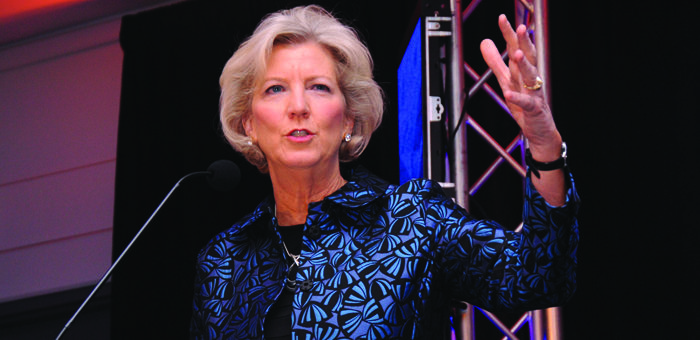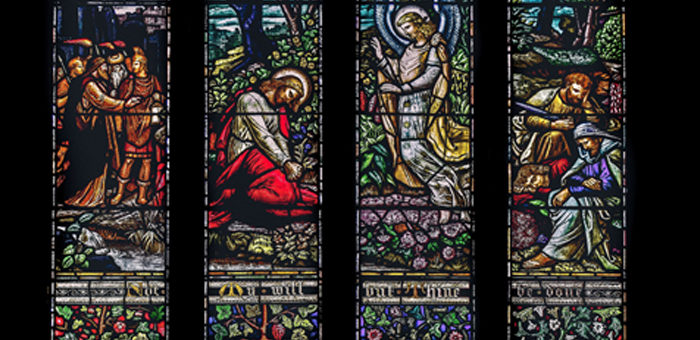Has the Church left the building? That is, are Christians still being the Church even if they aren’t meeting in buildings? Many of us in ministry and leadership have asked ourselves this at some point during 2020. And it continues to be an important question as we see that even for those whose locales have allowed in-person gatherings again, many churches are seeing only a fraction of their pre-COVID attendees return with no guarantee of going back to normal.
As much as any time in history, I believe the Church today must be marked by unity and — as was said about the tribe of Issachar in 1 Chronicles 12:32 — an understanding of the times and the knowledge of what to do next. So, what are we to do?
1. Start a New Chapter
I will be the first to say I don’t have all the answers. What I do know is if COVID-19 has taught us anything, we must be prepared for transition. Change is a decision. Transition is a process. Deciding to make a change to migrate what you were already doing pre-COVID to a digital format is a relatively easy decision. However, fully transitioning your ministry (and resources) to adapt to this new season — that’s a process!
One important and often overlooked part of the transition process includes grieving, and too often we fail to do that. Some of what we had to let go of in 2020 was significant — painful even. Change is increasingly difficult when decisions have names and faces and history tied to them. We must take time and find ways to grieve. If you’ve already turned the page and begun a new chapter in your church, ministry or organization, make sure you’ve properly grieved that which you’ve left behind. Doing so isn’t weak; it’s healthy.
At the same time, this is a new season. As leaders in his Church, God isn’t looking to us to recreate what’s now dead. He seeks to breathe life into what’s new. If you’re trying to reach a 2021 world with outdated or ill-informed perspective or with yesterday’s methods, I challenge you to grieve, let go and turn the page. There’s a beautiful new chapter full of divine solutions to your community’s needs just ahead!
2. Remember That Opportunity Awaits
Evangelizing during hard times and to difficult places is in the DNA of the individuals and teams within Assemblies of God U.S. Missions. The very reason we exist is to mobilize people to reach the challenging and neglected people and places in our country. That’s not just a phrase in a mission statement — it’s who we are!
I don’t want to downplay the negative impact this pandemic has had on some churches. However, our missions personnel have repeatedly seen how the pandemic has opened doors for ministry in ways they haven’t previously experienced. The Church is called for such times like this one. We are to be the light in the darkness. We are to look with the eyes of Christ to see the lost, the broken and the hurting among us. Too often, we don’t see them because we aren’t looking for them.
In broader culture, adaptability and innovation have seen meteoric rises to become some of the most prized traits of a leader. These have been decades-long necessities for people in ministry and missions. Really, these have been part of the mandate for followers of Christ for millennia.
Sometimes I think we need to take our eyes off what we currently see to allow our ears to hear what God has already said. Jesus didn’t call us to a fixed singular method. He left us with a dynamic, global kingdom mission. Culture will always change. His Word is what remains. It’s only right then to believe that our ways of reaching and impacting culture with the good news of Christ must adapt.
3. Steward the Moment
One thing I’ve noticed over my years of ministry is that during times of national or global crisis, something shifts in the spiritual realm and in the hearts of those who do not yet know Christ. Receptivity seems to increase. Loss, brokenness and despair beg for hope. Questions and search for meaning are brought to the forefront.
Outside of prayer and fasting, one of the best things we can do during moments like this is to be present, engaged and respond to needs. Our U.S. missions team has found this to be especially true during this moment. One study by the CDC showed that rates of adverse mental health conditions, substance abuse and suicidal ideation were anywhere from 2-4 times higher than pre-pandemic levels. Months into the pandemic, 40 percent of surveyed U.S. adults reported struggling with mental health or substance abuse. Amidst these new realities, leaders in Adult and Teen Challenge have responded to resource and provide hope and recovery to this increased need.
Our chaplains have put themselves in harm’s way to minister to those in hospitals and medical facilities, in military and law enforcement contexts and also amongst first responders to crisis events such as the numerous hurricanes and wildfires. Not to mention, we have many ministering within the great areas of need in our nation related to human trafficking, foster care and adoption.
Education in our country has undergone enormous transformation. This has provided opportunity for missionaries with Youth Alive to help students in junior high and high school transform the way they share the gospel with their peers. In higher education — with nearly half of U.S. colleges primarily or fully online — missionaries with Chi Alpha have traded in-person gatherings for digital evangelism and discipleship of college students. We have Chi Alpha groups on over 300 campuses, and dozens have actually reported increases in the number of students they’re discipling compared with pre-pandemic in-person metrics.
Missionaries with Intercultural Ministries are reaching the diverse people groups that are often unnoticed or underserved during normal times in America. The need magnifies during times of crisis when levels and layers of support within these communities are disrupted. And finally, Church Mobilization has responded by mobilizing more missionaries, church teams and volunteers to respond to the greatest needs of our churches and communities.
Final Thoughts
God was not surprised by 2020. In a year that was marked with much change, difficulty and transition, it also provided us many new opportunities to steward as his plan and purposes advance. Through it all, his mandate for missions remains. And, as a laborer with you in his kingdom, I choose to remain present and engaged in the field and work with his promised harvest in sight.
This article originally appeared in Evangelicals magazine.
Malcolm Burleigh is the executive director for U.S. Missions at Assemblies of God. He leads the missions team, which includes over 18,000 missionaries, chaplains and project volunteers. This includes more than 1,000 nationally appointed U.S. missionaries and over 600 endorsed chaplains. Prior to leading U.S. missions, Burleigh served as the AG senior director of Intercultural Ministries. He served as president of the National Black Fellowship of the Assemblies of God from 2008–2012. Burleigh served as pastor of Living Faith Assembly of God in Tampa, Florida, and as senior associate pastor at Belmont Assembly of God in Chicago. He studied at Moody Bible Institute.




 View All Articles
View All Articles 





























